Sustainable building design in Africa
Sustainable building design in Africa
The course provides the main information about technological systems and tools for designing climate responsive buildings in Africa.
Introduction to the Sustainability series
This MOOC is part of the series on “Sustainability”, which is one of the world’s major challenges of today and tomorrow and requires multidisciplinary competences. The series provides technical knowledge on a variety of topics, such as sustainable building, energy transition, water management and food waste prevention.
See the full seriesCourse description
The building sector is a major CO2 emitter, second only to the industry sector, accounting for 27% of global emissions, deriving both by the fossil fuel burnt for building operations viz. space heating, hot water production and cooking and by the one burnt for producing the electricity consumed. Moreover, almost 40% of the raw materials and energy produced worldwide are used in the building sector. If the present trend is not changed, the impact of the building sector on global warming is set to grow, because of the combination of factors such as the population growth, the urbanization process, and the improvement of the economic conditions in developing countries. The increase in energy consumption in the building sector can be expected to be even more dramatic, not only because air conditioning will spread and the number of domestic electric and electronic appliances will grow, but also because of the increase in the number of buildings. Among developing countries, the rapid economic and population growth in Africa will have profound implications for the energy sector, both regionally and globally. In this respect, the aim of the course is to provide concepts, tools and necessary information, useful for the development of an environmental conscious approach for designing climate responsive buildings in order to minimise energy demand for adequate thermal and visual comfort in the African countries.
Total workload of the course: 15 hours
This MOOC is provided by Politecnico di Milano.

This project has received funding from the European Union’s Horizon 2020 research and innovation programme under grant agreement No. 894712– ABC21
The European Commission’s support for the production of this publication does not constitute an endorsement of the contents, which reflect the views only of the authors, and the Commission cannot be held responsible for any use which may be made of the information contained therein.
Intended Learning Outcomes
By actively participating in this MOOC, you will achieve different intended learning outcomes (ILOs).
Week 1
- Identify the different features of the climates and to define the main design priorities.
ESCO: developing objectives and strategies ESCO: building construction principles - Apply integrated approach in bulding’s design.
ESCO: inter-disciplinary programmes and qualifications involving engineering, manufacturing and construction ESCO: leading and motivating - Define the competencies required to build a successful team to achieve project goals.
ESCO: building and developing teams
Week 2
- Recall the main concepts of building physics.
ESCO: building construction principles ESCO: building and civil engineering - Define the competencies required to identify the main suitable building’s materials in relation to the context.
ESCO: inter-disciplinary programmes and qualifications involving engineering, manufacturing and construction ESCO: building materials industry
Week 3 and Week 4
- Apply sustainable strategies to design climate responsive buildings.
ESCO: constructing ESCO: building construction principles - Demonstrate understanding of the building physics fundamental apply to different context.
ESCO: building and civil engineering
Week 5
- Recall the main concepts on efficient HVAC systems.
ESCO: building construction principles - Apply active solutions to design climate responsive buildings.
ESCO: constructing ESCO: building and civil engineering
Prerequisites
No prerequisite knowledge is required for this course.
Activities
Over and above consulting the content, in the form of videos and other web-based resources, you will have the opportunity to discuss course topics and to share ideas with your peers in the Forum of this MOOC.
Section outline
-
-
Week 1 introduces the role of building sector in the GHG global emission, pointing out the pivotal role of Africa in the near future. In such respect also the different climates in the Continent are described in detail.
-
In Week 2 the main principles about building physics are provided. The weekes address both heat transfer and the comfort principles.
-
Weeks 3 and 4 are entirely dedicated to the climate responsive design. More in detail Week 3 deals with design choices (e.g. orientation, solar shading devices) able to reduce the energy demand of buildings.
-
Weeks 3 and 4 are entirely dedicated to the climate responsive design. More in detail, in Week 4 the impact of different glazing components and main rules to enhance the natural ventilation are outlined.
-
In Week 5 the main high-efficiency technical systems and renewable energy sources able to reduce the energy consumption and the dependency from fossil fuel are discussed.
-
-
Assessment
Your final grade for the course will be based on the results of your answers to the assessed quizzes. You have an unlimited number of attempts at each quiz, but you must wait 15 minutes before you can try again. You will have successfully completed the course if you score a total of 60% (or higher) in each of the assessed quizzes.
The maximum score possible for each quiz is given at the beginning of the quiz. You can view your score in the quiz on your last attempt or on the 'Grades' page.
Certificate
You can achieve a certificate in the form of an Open Badge for this course, if you obtain, at least, 60% of the total score in the graded quizzes and by filling in the final survey.
Once you have completed the required tasks, you will be able to access ‘Get the Open Badge’ and start issuing the badge. Instructions on how to access the badge will be sent to your e-mail address.
The Badge does not confer any academic credit, grade or degree.
Information about fees and access to materials
You can access the course absolutely free of charge and completely online.
Course faculty

Federico M. Butera
Federico M. Butera, Emeritus Professor of Environmental Technical Physics at the Politecnico di Milano, is UN-Habitat consultant for the development of handbooks on sustainable building and community design in tropical climates and for the design and implementation of training courses on the same subjects in East Africa. For more than 40 years he has been actively concerned in the field of solar energy applications, low energy architecture and sustainable urban development, pioneering the introduction of the topic “sustainable building design” in the architecture students’ education.
He has been involved in many research tasks of the IEA as well as in several EC research programs and in UN and World Bank development projects dealing with renewables and efficient use of energy at building and community scale. Besides his wide scientific production he is also author of books, articles and videos on energy issues for non-specialised audiences. In the last years he has been involved in the design of low and zero energy buildings and communities in Italy, China, Hungary and Niger.
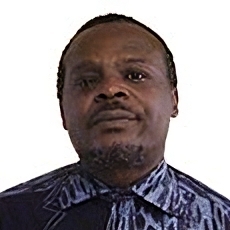
Vincent Kitio
Chief of Urban Energy Unit, UN-HABITAT, is architect from the Institute of Architecture of Venice with a Master Degree on Climate and Architecture in the Tropical Countries. He holds a PhD in Appropriate Energy Technologies for Developing Countries, from the University of Rome la "Sapienza". He is a former lecturer of Environmental Science of Building at the University of Nairobi. He has founded the African Centre for Renewable Energy and Sustainable Technologies (ACREST), a Cameroonian NGO that promotes renewable energy options and appropriate technologies to fight poverty. Vincent is currently Energy Advisor for UN-Habitat with the task of mainstreaming Energy into UN-Habitat’s programmes and activities.
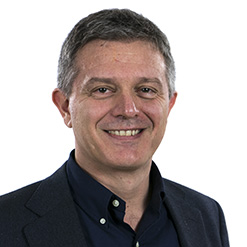
Niccolò Aste
Niccolò Aste, is a Full Professor of the Dept. of Architecture, Built Environment and Construction Engineering.
He has been actively engaged in several National and International research activities related to energy efficiency of the built environment and to the exploitation of renewable energy sources, with particular reference to the topics of PV technology and its building integration.
Over the years, he has significantly contributed to energy research and has more than 100 scientific publications including three books on the aforementioned issues and research themes. Most relevant publications and research activities deal with the building integration of innovative LSC, PV and PV/T components a well as sustainable buildings technology.
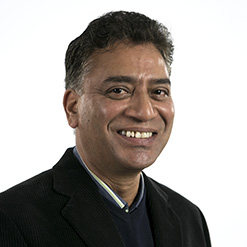
Rajendra S. Adhikari
Rajendra S. Adhikari is currently working as Associate Professor at the Dept. of Architecture, Built Environment and Construction Engineering, Politecnico di Milano.
Over the years, he has been participating in various National and International research projects. His research work is mainly focused on renewable energy, energy efficiency in buildings, energy conservation and low energy technologies. He is the author and co-author of more than 90 publications including two books and scientific papers in various International/National Journals of repute and conferences/seminars.
He has been the member of the editorial board of the international journal ISRN Renewable Energy (The International Scholarly Research Network Publishing). Currently he is the member of the editorial board of Energy and Power (Scientific & Academic Publishing) and Current Advances in Energy Research (American V-King Scientific Publishing).
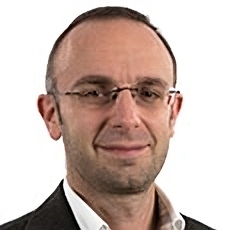
Claudio Del Pero
Claudio Del Pero is an Associate Professor of the Architecture, Built Environment and Construction Engineering Department.
He is actively involved in research and advisory activities related to energy efficiency of the built environment and to the exploitation of renewable energy sources, with particular reference to the topics of PV technology and distributed energy generation.
Over the years he has been involved in various National and International research projects related to the exploitation of renewable energy sources, energy efficiency in the built environment and energy management.
Since 2009 he cooperates with the VISPE association (Italian Volunteers for Solidarity in Emerging Countries) for the design and the construction of stand-alone photovoltaic systems for off-grid users and a field hospital in Burundi.
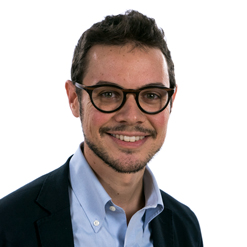
Fabrizio Leonforte
Fabrizio Leonforte is an Associate Professor fellow at Department of Architecture, Built environment and Construction engineering. He has carried out different theoretical and experimental works on renewable energy and energy efficiency in buildings with special focus on the application of hybrid PVT systems.
Since 2013 he is lecturer in two master on the topic of photovoltaic systems and zero energy buildings design at Politecnico di Milano.
He has been also involved as technical advisor in several national and international researches as well as in different project with NGOs and Universities for capacity building of local staff.
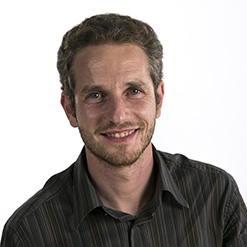
Manlio Mazzon
Manlio Mazzon, graduated in Architecture at Politecnico di Milano in July 2008, has achieved a Ph.D in Technology and Design for Environmental and Building at Politecnico di Milano in January 2016, discussing a thesis on “Development And Use Of Dynamic-State Simulation Tools Suited For Energy Performance Optimization In The Integrated Architectural Design Approach”.
In recent years, he focused on the development of a SketchUp-based interface for building energy dynamic-state simulation carried out by EnergyPlus. Also, he mainly dealt with building energy optimization during the design phase and with energy dynamic-state models and related evaluation tools.
He actively collaborated with teaching activities, both in university and in professional training courses on zero energy buildings issues.
Contact details
If you have any enquiries about the course or if you need technical assistance please contact pok@polimi.it. For further information, see FAQ page.